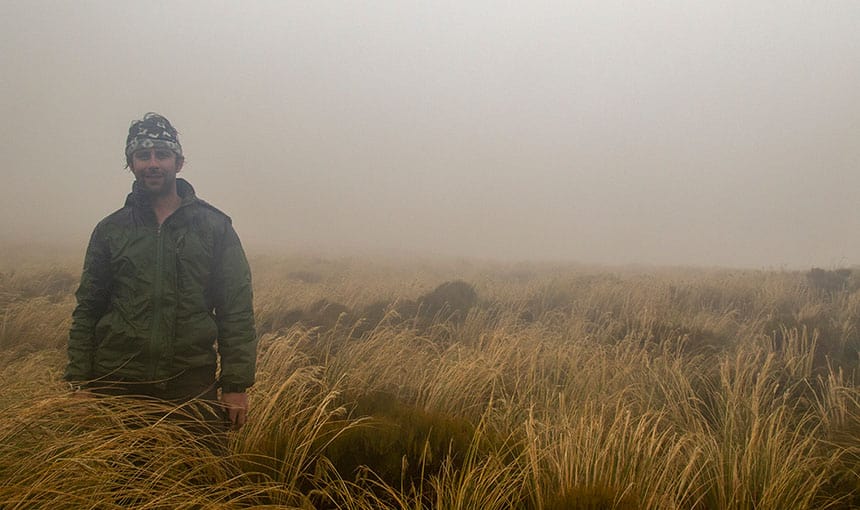Auckland University’s Dr James Russell spent a month conducting field trials on the remote, subantarctic Auckland Island/Motu Maha.
He was helping the Department of Conservation with their Maukahaka/Pest Free Auckland Island project, which aims to clear the 46,000-hectare island of its last mammalian pests.
The island group is listed as a World Heritage site because of its diverse endemic wildlife. However, pigs, cats and mice still call the refuge home and they have had a disastrous effect on endemic species.
“Together, the three species have had major impacts on birds, invertebrates and plants on the island, causing habitat transformation and altering ecosystem processes,” says James.
The Associate Professor leads a BioHeritage project that aims to find high-tech, scientific solutions that will lead to the widespread suppression and eradication of small mammal pests, including possums, rodents and stoats.
Because of his experience, and work on island ecosystems, James was well-placed to help the Department of Conservation with the ambitious Maukahaka project.
Field trials run during the 2018/2019 summer expedition to Auckland Island were aimed at confirming the feasibility of the project, and James says the results look promising.
This eradication is one of the 2025 interim goals for the national aim of Predator Free 2050.
